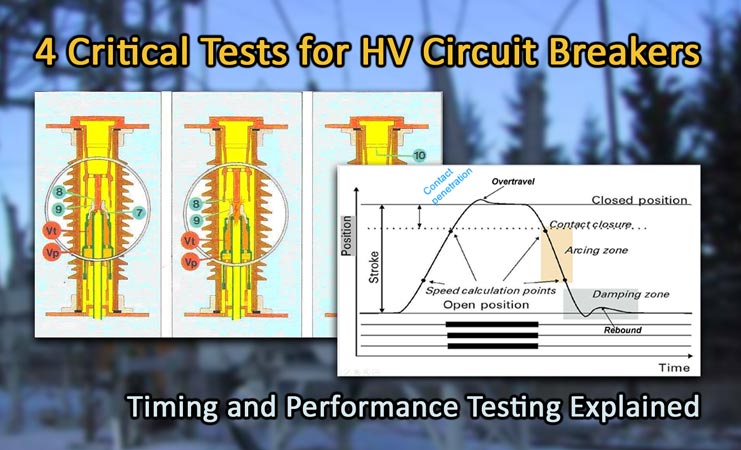
Various tests can be conducted on high voltage circuit breakers to evaluate the operational performance of their different internal components. Photo: TestGuy.
Circuit breakers are some of the most complex and critical mechanical components contained within the electrical power system. They are responsible for interrupting nominal and short circuit currents in addition to performing routine changes in the overall system configuration.
Various tests can be conducted on high voltage circuit breakers to evaluate the operational performance of their different internal components. Regardless of the breaker type - whether it be air blast, oil, vacuum, or gas - its important to test their components regularly to help ensure proper operation in case of a system fault or switching operation.

This guide covers the basic theory and applications of power quality monitoring and analysis. Photo: TestGuy.
There are a number of ways in which electric power can be of poor quality. Improper wiring, incorrect grounding, and unbalanced loads are just a few examples of conditions that can produce electrical noise through an electrical system and compromise power quality.

This guide covers the basic theory and applications for Magnetron Atmospheric Condition testing of vaccum interrupters. Photo: TestGuy.
Vacuum interrupters have been used extensively in modern electrical systems to replace older air-magnetic and oil interrupters for circuit breakers rated 1kV-36kV due to their compact size, faster operating speeds, and higher life expectancy.
Although the service life of a vacuum interrupter is the longest of any other interrupting method, they can still catastrophically fail at anytime resulting in extensive downtime. For this reason, field testing of vacuum interrupters is often used to detect and prevent problems that could eventually lead to equipment failure.

There are many different types of power system study, each with their own special purpose and calculation method. Photo: United States Air Force (CC).
Power system studies are essential tools in understanding the expected performance of an electrical system and determining the severity of a fault or other unexpected event.
The data contained within a power system study can be used to safeguard workers by calculating the level of personal protective equipment involved and reduce damage to equipment by optimizing the fault clearing capabilities of protective devices.
Sharpen your skills with our collection of quizzes on electrical safety, maintenance & testing of electrical equipment and industry standards.
Tech Quiz Study Guide